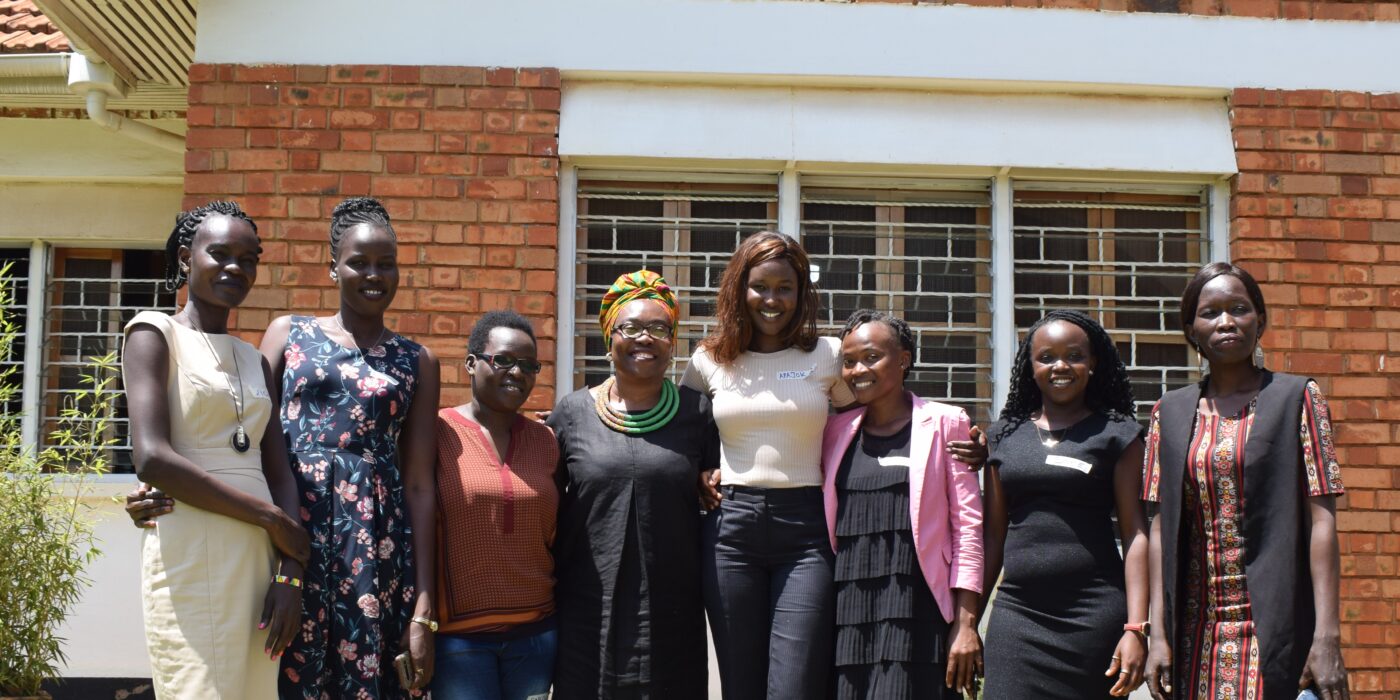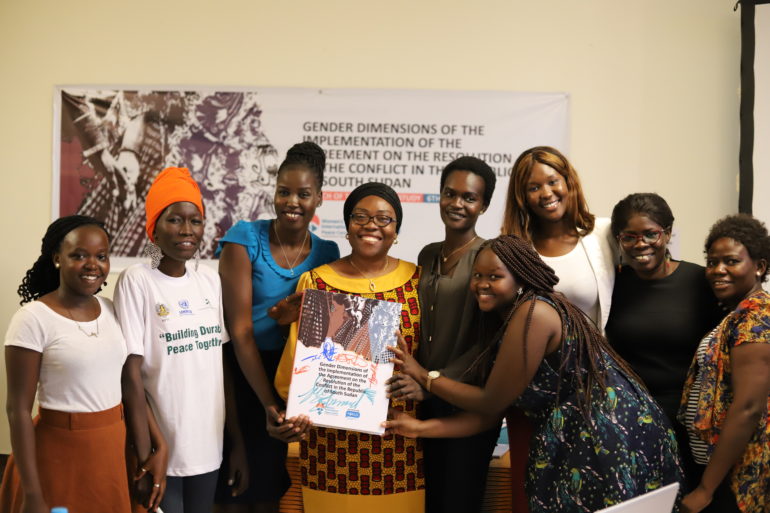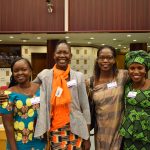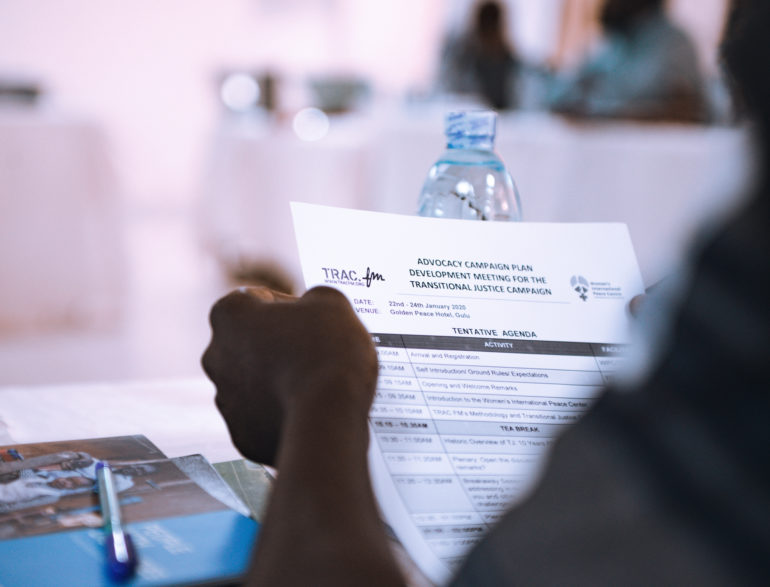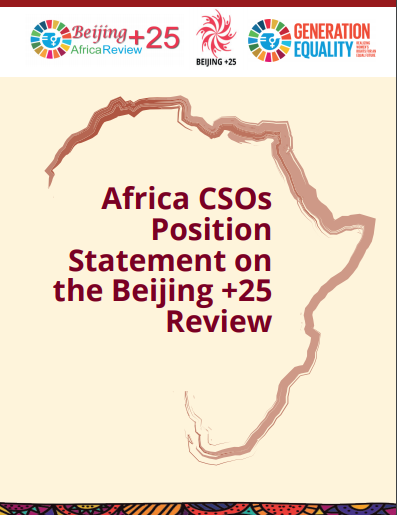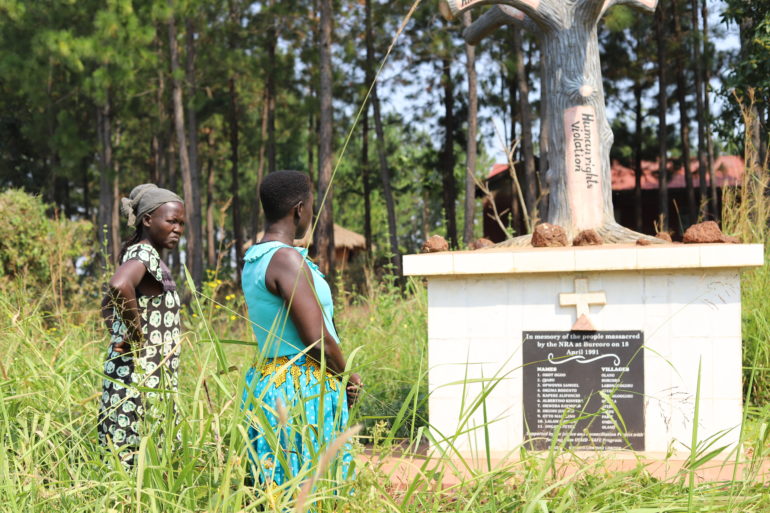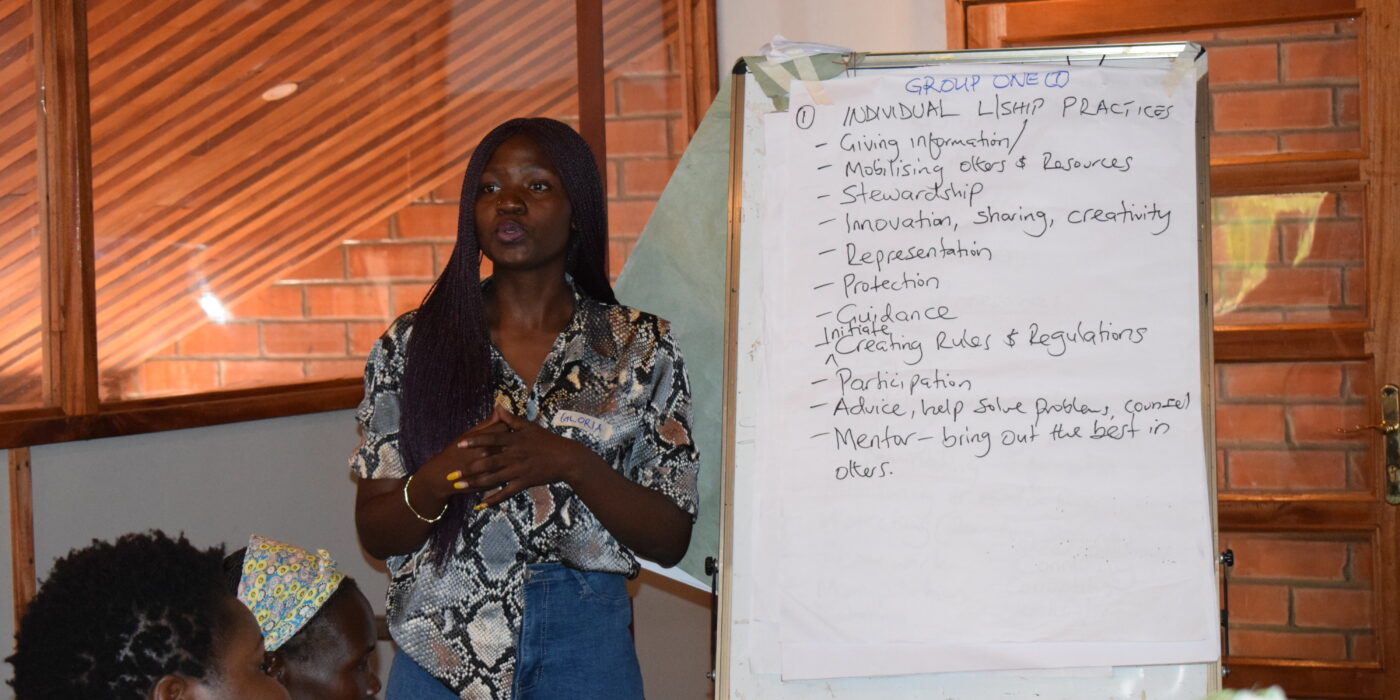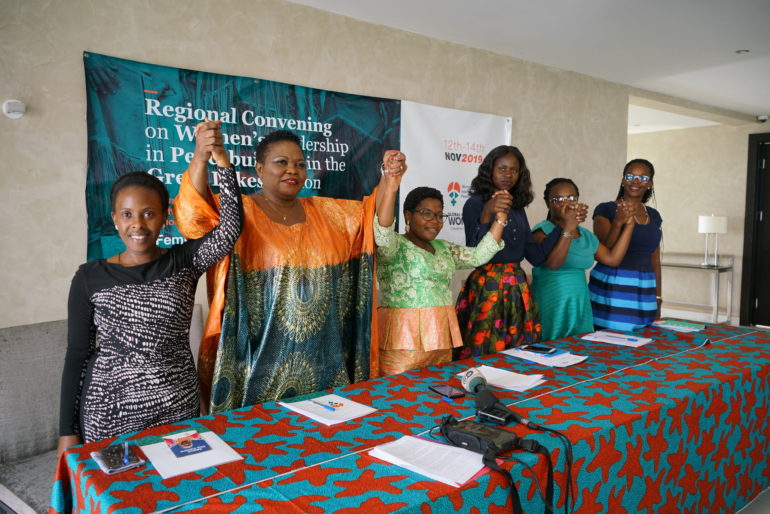South Sudan Young Women Leaders’ Exchange Visit to Uganda.
This week saw phase two of the Training on Advocacy, Gender and Peace Building implemented when 5 young women leaders from South Sudan came to Uganda as part of a 3-day learning visit from 10th to 12th February 2020. This was planned for a more immersive learning experience with women leaders and women’s rights organizations within Uganda’s women’s movement. Women’s International Peace Centre (WIPC) which hosted the girls, is partnering with the Centre of Inclusive Governance, Peace and Justice (CIGPJ) to strengthen young women’s capacity to participate in and influence peace processes and their outcomes from a gender perspective in South Sudan.
The visit was part of the plan of equipping Young Women to Participate in and Influence Peace Processes and Post-Conflict Governance and aimed at;
- Facilitating an exchange of information, experiences, strategies and solidarity between the young women in South Sudan and a diversity of women and women’s rights organizations in Uganda. This was accomplished with interactions with the Peace Centre and a session on Personal and Professional Leadership and Growth – Rita Atukwasa Executive Director, Institute for Social Transformation
- Exposing the trained young women leaders to models and positive examples of young women’s leadership and efforts to influence policies, programs and structures in post-conflict context and this was achieved with the help of the women in leadership symposium organized by Akina Mama wa Afrika
- And strengthening their personal leadership skills which was possible through interactions like experience sharing from young leaders by Rachel Wanyana and a session facilitated by Harriet Nabukeera Musoke on recognizing self-worth and the importance of having a vision as a young leader

“ Words cannot explain how much I enjoyed my time in Uganda and how the training empowered, mentored, inspired, molded and capacitated me.” Arek Malek; one of the 5 young women leaders shared about her visit.
This comes after a previous training in Juba where 25 women aged between 22 and 35 were trained on advocacy and collective action to advance the women, peace and security agenda. At the end of which, participants created an informal network dubbed ‘Young Women Leading for Peace’ composed 4 working groups and produced 4 work plans for their engagement with key decision-makers and mechanisms on issues of young women in governance and in the coming Transitional Government of National Unity (TGONU), the formation of states/boundaries, security (including DDRR, security sector reform and SGBV) and legislative review processes. The 5 young women leaders (and 1 sign language interpreter) represented the 25 members of the 4 groups.
The women left motivated, with a pack of lessons and ready to share all they’ve learnt in Juba.

Atim Caroline one of the participants with a hearing impairment mentioned that she had been encouraged “I learnt that it is important to keep your target and goal in mind but I also need to allow yourself to make mistakes as it’s the normal learning experience”

